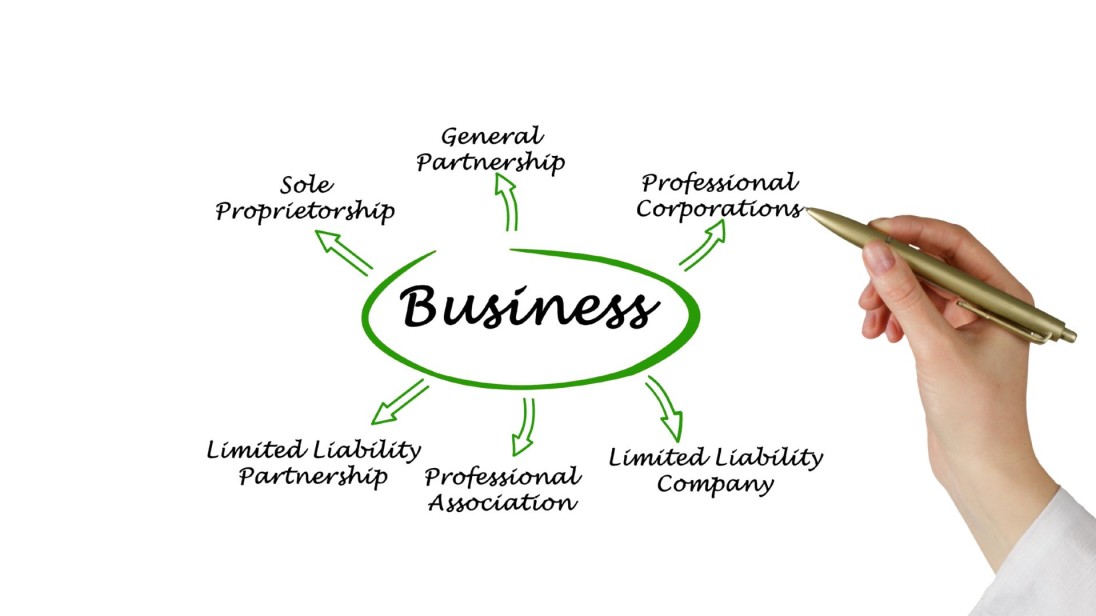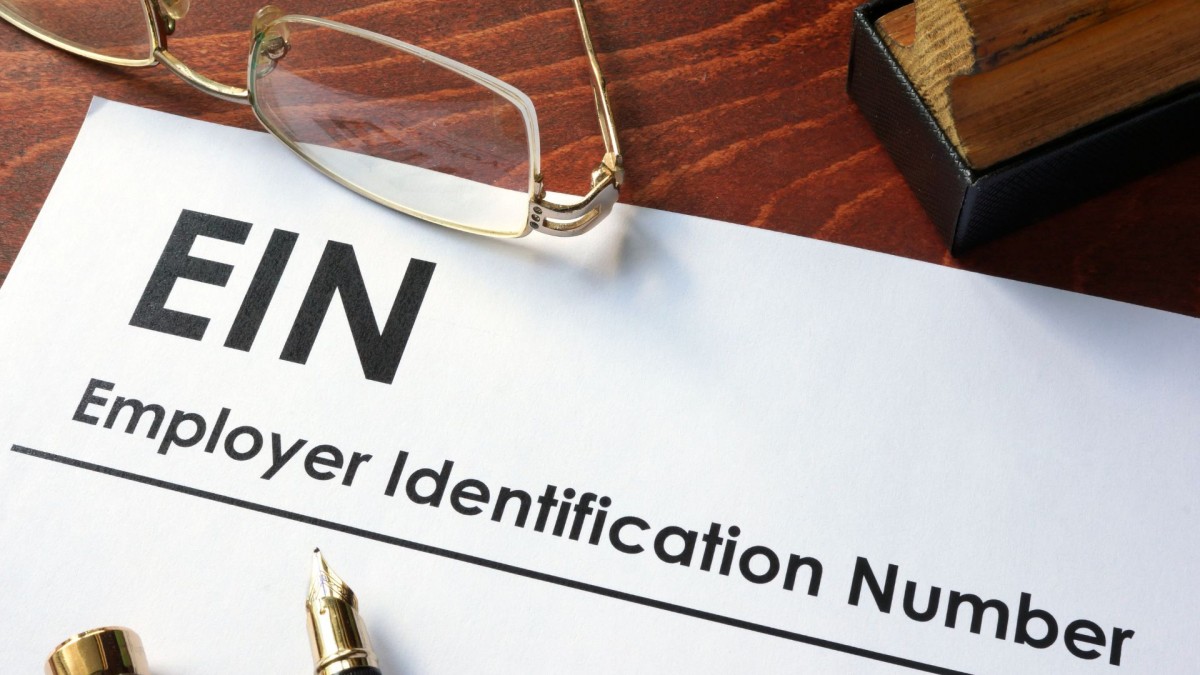Dreaming of running your own company is exciting, but figuring out how to start a business can feel overwhelming. A lot of individuals jump in without planning and waste time, money, and energy. The positive thing is that when you do things the right way initially, you can develop your idea into a business that develops consistently and will still survive in the competitive market.
There is more than a good idea to starting a business. It needs research, planning and action. The foundation you create today is what will make or break you in the long term, either as a small side hustle or as a startup. It can also be useful to keep an eye on the future business trends 2025 in order to develop smarter plans and be ready to face what is coming next with your business.
Here, we are going to divide the 10 crucial steps to start a business. These steps are easy to follow and will allow you to prevent mistakes, gain confidence, and prepare your new venture to grow.
Step 1: Conduct Market Research and Competitive Analysis

If you are wondering how to start a business, the very first step is research. Market research helps you check if your idea has a real chance of success. It answers questions like who your potential customers are, what they value, and how much they are willing to pay. This makes it easier to understand how to start a small business in a way that connects with the right audience.
Why Market Research Matters
Market research will either prove the actual demand for your product or service. It emphasises customer requirements, purchasing patterns and purchasing power. Without this, you can find yourself constructing a thing that nobody wants.
Where to Find the Data
General trends can begin with government reports, census information or industry research. You need to go deeper; develop surveys, conduct interviews or focus groups to hear voices directly. You need to go deeper; develop surveys, conduct interviews or focus groups to hear voices directly, and gather additional data through a web scraping API.
Study Your Competitors
After you know the market, you must analyse your competition. Competitive analysis helps you to see what other businesses are doing well and what they are doing poorly. It makes you see the chances to shine through with superior service, cost, or product quality.
Put Insights Into Action
With customer research and competitor analysis, you get the clarity to take action. You will know who your audience is, the demand size, and how to sell your idea differently. All your future decisions are based on this knowledge. In fact, most businessmen or women start planning by reviewing lists of 10 high profit business ideas to determine which ones best match market demand before taking the plunge.
Step 2: Write Your Business Plan

Any company is built on a business plan. When you are starting a small business, you require a roadmap on how your idea will become a reality. A business plan is a document that presents what you want to accomplish, how you will do it, and what resources you will use. It is also the paper that investors, lenders, or even future partners will need before they believe in your idea.
Why a Business Plan Matters
Your strategy takes you through all the steps of constructing and operating your business. It compels you to consider important aspects of your market, competition, financial forecast, and long-term plan. More to the point, it also makes you remain focused when difficulties arise. To any beginner in business, without this structure, it would be just guesses and decisions made without having sufficient information.
Choose the Right Format
Business plans have two styles. A traditional business plan is detailed, structured, and often requested by banks or investors. It is more time-consuming to prepare; however, it spans from market plans to financial projections. Instead, a lean startup plan is much quicker to write and concentrates on the basics. It is typically a one-page summary that recaps your vision, business model and important activities.
Tailor the Plan to Your Needs
A plan has no right way to be written. The thing is that you should make it work and achieve your goals. When you want to draw investors, a conventional plan will convince them that you have considered all possibilities. A lean plan may suffice to get going, should you merely intend to lead your own actions. This flexibility is why many people preparing for a startup start a business begin with a lean plan, then expand it as their company grows.
Keep It Practical
Your business plan should not just sit on a shelf. Revisit and update it regularly as your business changes. Think of it as a living document that grows with you, making sure every decision is connected to your larger vision.
Step 3: Fund Your Business

Any new business requires capital to start. After you have that start a business idea, how do you fund it? That is the question. Financing is among the initial financial choices you will make, and the decision you make will determine how you operate your business in future.
Calculate What You Need
Every business has its own cost. An online store that is small may need just a few hundred dollars to start, but a restaurant or a retail store may need thousands. Start with a list of your costs, such as equipment, licenses, rent and initial marketing. This will provide you with a clear outline of the funding that you will need to obtain.
Self-Funding
One of them is to use your own money to fund your company, which is usually referred to as bootstrapping. This may include the need to use savings, seek the assistance of friends or relatives and use personal resources. The reward is complete command, but the danger is entirely personal. Take caution, particularly when you intend to utilize retirement or personal credit. Budget for scalable tools, including contact center software, that will help your business handle customer queries effectively as you grow.
Venture Capital and Investors
Investors can be interested if you are creating a company with high growth potential. Money is provided by venture capital firms or angel investors, often in exchange for equity and occasionally a voice in the company's decision-making. Although this provides you with huge amounts of capital, it corresponds to co-ownership.
Crowdfunding
The crowdfunding enables you to get minimal sums of money from numerous individuals via internet platforms. Contributors do not typically receive ownership, but can get a gift or an early copy of your product. It is a low-risk alternative that suits a product or creative-based business.
Small Business Loans
The other option is taking out a loan. When you are preparing to start a small business and you do not have sufficient capital to start your business, a bank loan or an SBA-sponsored loan will give you the necessary push. A good business plan, financial projection, and a clear plan to repay will help you get approved.
Government Programs
For some businesses, government-backed investment programs exist. These include SBICs (Small Business Investment Companies) and SBIR or STTR programs that support research and innovation. These opportunities are competitive but can provide powerful resources to help you grow.
Choose Wisely
Your funding path should match your business goals. If you want full control, self-funding or loans may be better. If you want rapid growth, investors or venture capital may be the right choice. The key is to weigh the risks and rewards carefully before making a decision.
Step 4: Pick Your Business Location

Choosing the right location is one of the most important decisions when you are starting a business new. The place you select will determine your taxes, permits, zoning laws, and even the overall costs of running your company. A good location also makes it easier to connect with customers and attract employees.
Research the Best Place
Your location affects everything from legal registration to licensing. Where you set up your business should align with your target market, supplier access, and personal goals. Think carefully about the state, city, and neighborhood before committing.
Understand Regional Expenses
Startup costs vary widely depending on location. Rent, salaries, insurance, utilities, and licensing fees may be affordable in one area but much higher in another. Always include these regional differences when planning your budget.
Zoning and Legal Rules
If you plan to operate from a physical space, make sure it meets local zoning requirements. Cities often separate residential and commercial areas, and some businesses are not allowed in specific zones. Even home-based businesses may face restrictions, so checking with your local planning department is essential.
Consider Taxes and Incentives
Taxes can differ from state to state and even city to city. Property tax, sales tax, and corporate tax may add significant costs. At the same time, some areas offer incentives like tax credits or grants to attract small businesses. Federal programs such as HUBZone can also provide benefits if you qualify.
Make a Strategic Choice
Location is more than geography it’s strategy. When you evaluate costs, legal requirements, and growth opportunities together, you make smarter decisions. This stage is one of the key steps to start a business that lasts long term.
Step 5: Choose a Business Structure

When people ask how to start a business, one of the most important decisions is choosing the right business structure. The structure you select will shape everything: taxes, daily operations, liability, and even how you raise money. It also affects how much of your personal assets are protected if the business faces financial risks.
Why the Structure Matters
Your business structure determines how profits are taxed, how paperwork is handled, and what level of personal liability you carry. Choosing wisely at this stage avoids legal problems and tax issues later. While you can change your structure in the future, it may come with costs or restrictions, so it’s best to start strong.
Common Types of Business Structures
- Sole Proprietorship: It is a simple form to establish, and the owner personally bears responsibilities towards debts.
- Partnership: Partnership means joint ownership between two or more persons, and the liability will depend on the partnership type (LP or LLP).
- Limited Liability Company (LLC): It has limited liability and tax flexibility, which is the reason why it is highly favoured by most small business companies.
- Corporation (C Corp or S Corp): This is very advantageous in terms of liability, and comes with increased paperwork and regulations. C corporations are taxed twice, and S corporations permit the taxation of profits to the individual income of the owners.
- Benefit Corporation: This is a structure intended to be used by companies that want to trade off profit against the public good.
- Nonprofit Corporation: It is a type of organisation that has been formed to offer charity, education or other community services and is not taxed.
- Cooperative: This type of business is owned and operated by members who share the profits as well as decision-making.
Professional Advice Can Help
Due to legal and tax regulations depending on the state, it is prudent to seek the advice of a lawyer or an accountant before making a final decision. They are able to direct you to the most advantageous choice regarding your objectives and cushion you against unforeseen difficulties.
Building the Foundation
Your company is legally supported by the business structure. It has an effect on how you handle customers, partners and even the government. With the correct choice, you will have a solid foundation to grow on and ensure your business is here to stay.
Step 6: Choose Your Business Name

When you start a business, one of the first creative steps is choosing the right business name. Your business name is not only a name. It is a symbol of who you are, what you stand for and the way your customers will remember you. A powerful brand will make people trust you and have an edge over the market.
Your brand name must mirror your brand, and it must be associated with what you sell or produce. It must also be distinct enough not to be confused with the competitors. A carefully selected name helps the customer develop trust in your business and build a long-term reputation.
Protect Your Name Legally
Once you have decided on a name, protect it. There are four main ways to register:
- Entity Name: Protects your name at the state level.
- Trademark: Provides nationwide protection for your brand. If you want to trademark a business name, you must file with the United States Patent and Trademark Office (USPTO). This prevents competitors in your industry from using a similar name and gives you stronger legal rights.
- Doing Business As (DBA): Lets you operate under a trade name that differs from your legal entity.
- Domain Name: Secures your brand online by protecting your website address.
Each option serves a different purpose, and in some cases, multiple registrations may be required depending on your business structure and state rules.
Keep It Consistent
In as many places as possible, attempt to use the same name in entity, trademark, DBA, and domain registration. This kind of uniformity contributes to your brand image and does not lead to confusion. Although you may switch your DBA or domain, always ensure that your legal protections are in place.
Turning Ideas Into Reality
When you have already started a business idea, giving it a name is a big step in making it happen. Brainstorm, research availability and consult trademark databases. When you are sure, make it fast, or no one will be able to claim it.
Step 7: Register Your Business

Forming a business as an official legal person. The registration will depend on the structure you have chosen and where you are operating. Registration also provides protection, grants you legal benefits, and enables you to operate your company without compliance concerns in the future.
Do You Need to Register?
Not all businesses have to be registered. When you are using your own legal name, you might not need to be a registered name. But not registering translates to forfeiting protection under the law as well as tax benefits and legal status. Registering with most small firms begins with registering your business name at the state or local level.
Federal Registration
Businesses are required to register with federal agencies based on their operations. For example, nonprofits must seek tax-exempt status with the IRS, S corporations must submit IRS Form 2553, and trademarks must be registered at the U.S. Patent and Trademark Office. Many companies also started to provide beneficial ownership information reporting to FinCEN in 2025.
State Registration
The majority of LLCs, corporations, partnerships, and nonprofits must be registered in their state. Registration does not normally involve more than filing articles of either an Organisation, Incorporation, or Partnership Certificate. You also need a registered agent to take care of legal documents in your state. In the event that your business is based in more than one state, you might have to be foreign qualified in each state.
Local Registration
Certain counties or cities have their own filings, particularly when you may need local permits or you are doing business under a Doing Business As (DBA) name. To be sure, always review your city or county websites.
Stay Compliant
Registration is not the first step. Several states have annual or biannual reports, initial filings soon after registration or franchise tax filings. Compliance saves punishment and keeps your business off the hook.
Step 8: Get Federal and State Tax ID Numbers

Your federal and state tax ID numbers serve as a Social Security number to your company. You use these figures to register your business with tax authorities, pay taxes, recruit workers, and open bank accounts. Federal ID is called an Employer Identification Number (EIN).
Federal Tax ID (EIN)
The IRS issues an Employer Identification Number (EIN). When there are employees in your business, the business is a corporation or partnership, collects non-resident tax, or files certain types of returns, you should have it. You also might require one when establishing retirement plans or licensing.
It is free and easy. You may apply directly on the IRS site and get your nine-digit number instantly after your information is confirmed. Avoid those third-party websites, which demand costly fees, as the application is free.
You might require a new EIN if you wish to change the ownership and structure of your business. Although you cannot cancel an EIN, it can be deactivated when you close your company or sell it and pay all pending taxes.
State Tax ID Numbers
The issue of whether you require a state tax ID depends on where you are located and the type of business. These figures are used by states to deal with income tax, sales tax, and employment-based taxes like unemployment insurance and workers' compensation.
There are states with no income tax, but there can be certain regulations on dividends or employment taxes. You may also visit your state government to find out whether you need one. The application process tends to resemble the federal system, but it will be different depending on state legislation.
Why These IDs Matter
Your business will be able to operate legally and pay taxes properly, and no punishment will be imposed. They can also help lend extra credibility to them when dealing with banks, vendors, or government agencies. Having them immediately after registration makes operations smooth at the start.
Step 9: Apply for Licenses and Permits

Most businesses cannot operate legally without the right licenses and permits. These approvals show that you meet government standards and give you the authority to run your company. The requirements vary by location, industry, and the type of business you operate.
Federal Licenses and Permits
Some business activities are regulated at the federal level. If your company is involved in these areas, you must apply directly through the appropriate federal agency. Examples include:
- Agriculture: The importation or transportation of plants, animals, or biotechnology must be approved by the U.S. Department of Agriculture.
- Alcoholic Beverages: The production, importation, or sale of alcohol is subject to licenses of the Alcohol and Tobacco Tax and Trade Bureau and local Alcohol Beverage Control Boards.
- Aviation: Different companies that fly or offer air transport services should be licensed by the Federal Aviation Administration.
- Firearms, Ammunition, and Explosives: Controlled by the Bureau of Alcohol, Tobacco, Firearms and Explosives.
- Fish, Wildlife, and Commercial Fisheries: Under the U.S. Fish and Wildlife Service or NOAA Fisheries Service.
- Maritime Transportation: Transportation by sea, either cargo or passenger, must be licensed by the Federal Maritime Commission.
- Mining and Drilling: Federal land operations fall under the jurisdiction of the Bureau of Safety and Environmental Enforcement.
- Nuclear Energy: Requires approval from the U.S. Nuclear Regulatory Commission..
- Broadcasting: Radio, TV, or satellite companies will have to cooperate with the Federal Communications Commission.
- Transportation and Logistics: Oversized or overweight vehicles should have a state-issued permit that is sent to the U.S. Department of Transportation.
Every federal license has its own process, fees and terms of renewal, so it is advisable to inquire with the issuing Department.
State and Local Licenses
In addition to federal approvals, many businesses must also apply for state, county, or city licenses. Common examples include:
- Restaurants, food trucks, and catering businesses.
- Contractors such as plumbers, builders, and electricians.
- Retail stores, auctions, and vending machine operators.
- Service providers like dry cleaners or farms.
State and local governments also set their own renewal rules. Some licenses are valid for one year, while others last several years. Missing a renewal deadline can cause fines or even temporary closure, so keep track of your expiration dates.
Staying Compliant
The licenses and permits you need depend on your business activity and location. Start by researching state and local requirements through your Secretary of State’s office or city government website. Once obtained, monitor renewal deadlines closely to ensure continuous compliance.
Step 10: Open a Business Bank Account

As soon as your business is ready to accept or spend money, it is time to open a dedicated business bank account. This step helps you stay legally compliant, protects your personal assets, and gives your company more credibility with customers and partners.
Benefits of a Business Bank Account
Business bank accounts come in different forms, such as checking, savings, credit card accounts, and merchant service accounts. Each offers specific advantages:
- Protection: Separating personal and business finances creates liability protection and ensures secure customer transactions.
- Professionalism: Customers can pay your company directly, and you can authorize employees to handle transactions on behalf of the business.
- Preparedness: Many business accounts provide credit lines for emergencies or growth opportunities.
- Purchasing Power: Business credit cards help you make larger purchases and build a credit history for your company.
Shop for the Best Account
Not all banks offer the same fees, benefits, or services. Compare options carefully to find one that suits your needs. Look for:
- Low transaction and monthly fees
- Competitive interest rates on savings
- Flexible credit options
- Minimal account balance requirements
If you plan to accept credit or debit card payments, you may also need a merchant services account. These accounts process card transactions but come with added fees such as transaction costs, monthly minimums, or verification fees. Payment processing companies are also a popular option, often allowing you to accept payments directly through mobile devices.
Documents You’ll Need
Opening an account is straightforward once you’ve chosen a bank. Most banks will ask for:
- Your Employer Identification Number (EIN) or Social Security number (for sole proprietors)
- Business formation documents (such as Articles of Organization or Incorporation)
- Ownership agreements
- Business license
Why This Step Matters
A business bank account is more than just a way to store money. It ensures financial clarity, strengthens your professional image, and prepares you for long-term growth. Keeping business and personal finances separate is one of the smartest moves you can make as an entrepreneur.








